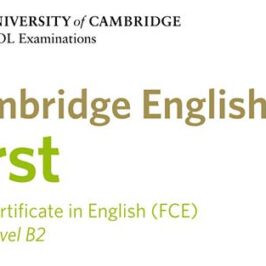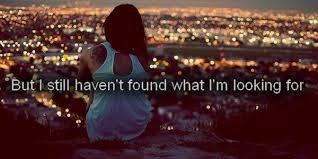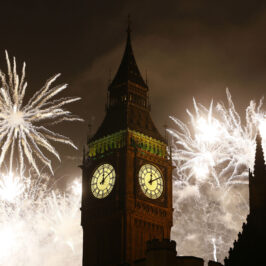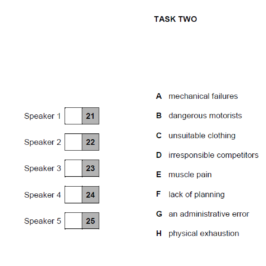Practise your Listening (Level C1) with this extract from a Cambridge Advanced English exam, CAE Part 3, with answers and tapescript – Tu Inglés Online!
You will hear part of a radio interview in which the comedian and writer Jane Clarkson is talking about her work. For questions 1-6 choose the answer (A, B, C or D) which fits best according to what you hear.
My advice: If it’s too difficult to answer directly, listen to what the answer CANNOT be. This may be useful for the first and last questions, especially.
You will hear the extract twice. When you finish, press ‘START’ and check your answers. You can use this notebook to write provisional answers:
1. What did Jane find difficult about writing a book?
A) She couldn’t travel around the country.
B) She didn’t get any instant reaction to her work.
C) She had to spend time looking after her daughter.
D) She found the process itself very challenging.
2. According to Jane, why did some critics dislike her novel?
A) They didn’t think the book was funny.
B) They were dismissive of her initial success.
C) They thought her male colleagues were better writers.
D) They thought she should stick to being a comedian.
3. Which aspect of Jane’s job as a comedian helped her to write?
A) her patience.
B) her ability to listen.
C) her habit of watching people.
D) her rational way of thinking.
4. According to Jane, how do many people react to female comedians?
A) They’re convinced women can’t tell jokes.
B) They’re afraid the women will break down.
C) They find women’s humour too intense.
D) They find women’s jokes embarrassing.
5. What was the disadvantage of the stage image that Jane developed?
A) It frightened the audience.
B) It made the audience angry.
C) People thought it reflected her real personality.
D) People did not take her seriously anymore.
6. Why does Jane prefer being a solo comedian to acting in a play?
A) She has a lot of options on where to work.
B) There is a greater range of roles.
C) It’s more rewarding financially.
D) It is a more relaxing way of life.
¿Como son las Clases de Conversación conmigo?
Precios y más información – pincha aquí
Cambridge CAE Listening with answers and Transcript
Click to see the Answers
B) She didn’t get any instant reaction to her work.
D) They thought she should stick to being a comedian.
C) her habit of watching people.
B) They’re afraid the women will break down.
C) People thought it reflected her real personality.
D) It is a more relaxing way of life.
Today I’m with the much loved comedian and writer Jane Clarkson, and obviously, Jane. This year has been quite a turning point for you.
Well, I’ll never stop doing comedy, but there were practical reasons for wanting to take some time off and write a book. I felt my daughter had been neglected. She was just about to make the tricky transition from primary to secondary school, and I thought she needed her mum around. I seem to have spent most of her life in a van, touring from venue to venue for a comedy act, and I did enjoy being at home for a bit, although I missed the applause and the laughter. When I finished writing in the evening, I’d turn the computer off and there’d be nothing which was hard to get used to.
How was your novel received?
Well, a lot of male comedians had written books, so there was a bit of a bandwagon waiting to be jumped on my impeccable timing, I jumped slightly late – when everyone was starting to get heartily sick of comedians books. Also, there’s a kind of fury coming from some journalists about comics writing books. They’re absolutely livid, as if they see your book in a bookshop and they jump up and down shouting, “It’s not fair. Why should she make money out of writing as well as performing?”
Was it a difficult transition?
Well, if you think logically, writing is the obvious step. I’ve spent years trying to make people listen to my anecdotes, so that must count for something. Also, if you’ve been an observational comedian, which I am, it’s not a great leap to use those skills you’ve developed, like observing odd mannerisms to use for jokes and and turn them into a book. At least that’s what I felt. But you don’t become a writer instantly. I’ll have to wait and see whether it was just beginner’s luck.
I think why people give you a hard time about the novel is surely because we’re so trapped into thinking, “Jane Clarkson is a comedian”, Uh, it’s as though you know you can’t do anything else. Which is quite ridiculous because you’ve been writing radio comedy for years.
Yes, people do become obsessed about what you are. The character I adopted for my comedy act became rather a burden after a while. When I started, I started going on stage alone. I was very young, and I wasn’t entirely convincing as a comedian – because nervous young women on stage actually frighten audiences. They’re convinced you’re going to fail and burst into tears, which will be very embarrassing. So there’s a palpable tension in the room, and some audiences actually boo the female comedians off the stage.
How did you deal with that?
Well, I had to counteract that stereotype, So I started coming on shouting and being madder and crosser than any audience ever be, and that diffused the tension. In fact, I rather overdid it, and my character got cruder than I ever really intended. I got so good at it that people got confused between the everyday Jane and the Stage Jane.
But what attracted you in the first place to performing, and particularly to making people laugh?
From an early age. I knew I wanted to be an actress. I innocently thought I was going to be a glamorous film star. The reason I started to do comedy acts was that in the nineties eighties, a lot of small provincial theatres closed down. In the past, girls would have come out of drama school, and if they had a leaning towards comedy, they’d join one of these small theatres and play a variety of comedy roles in all sorts of plays, from Shakespeare to contemporary stuff. All of a sudden, with the demise of these theatres, rooms above pubs opened up and comedians started telling jokes and developing their acts there. It was cheap. One performer, one microphone and anyone could do it. In some ways, it’s a healthier performance art than acting, because with acting, you’re at the mercy of everybody else, deciding whether you can work or not. With stand up comedy, you might only get paid peanuts, but nobody can stop you from just driving to a venue, often hundreds of miles in terrible weather and going on stage.
But what is it when you’re actually on stage….









Leave a Reply